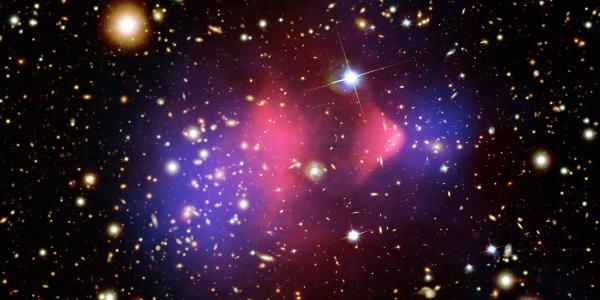Saturday Science Lecture with Manel Errando on Using Antimatter to Find Dark Matter
There is still a lot we don't know about the world around us. All the elementary particles we know (electrons, photons, the quarks that form atomic nuclei, neutrinos, etc.), combined in every possible way allowed by the laws of physics, only make up about 20% of the total mass of the Universe. What is the other 80% of the Universe made of? We don't know, but observations of spiral galaxies and the discovery of cosmic gravitational lenses tell us that this additional mass is there even though our telescopes do not see it. Hence the name: dark matter. In this talk we will summarize the Standard Model of particle physics and review a few key astronomical observations that provide evidence for dark matter. Even though dark matter is essentially dark and therefore difficult to observe, it is possible that it leaves a faint trail of positrons, the anti-particle of the electron, that we could detect with the next generation of gamma-ray observatories.
The Zoom link will be sent via email to everyone on our email list before each lecture. Those wishing to join the email list should email a request to physics@wustl.edu.

